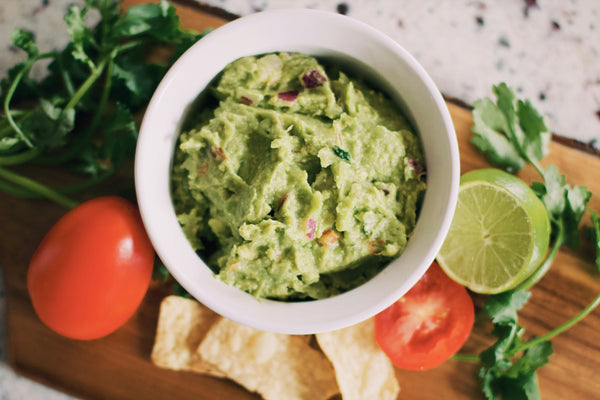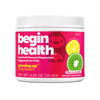Electrolytes and Kids: What Parents Need to Know
share this article
 Electrolytes play a key role in hydration, muscle function, and overall health, but many parents aren’t sure if their kids need extra electrolytes outside of their normal diet. Are electrolyte drinks safe for kids? When should kids take them? And how do they compare to water?
Electrolytes play a key role in hydration, muscle function, and overall health, but many parents aren’t sure if their kids need extra electrolytes outside of their normal diet. Are electrolyte drinks safe for kids? When should kids take them? And how do they compare to water?
Here’s everything parents need to know about electrolytes and kids, including when they’re necessary and what to watch out for in store-bought electrolyte drinks.
What Are Electrolytes?
Electrolytes are essential minerals that help regulate hydration, nerve function, and muscle movement. The most important electrolytes for kids include:
-
Sodium (Na+): Helps maintain fluid balance and prevent dehydration.
-
Potassium (K+): Supports heart function and muscle contractions.
-
Magnesium (Mg2+): Helps with digestion, muscle relaxation, and stress regulation.
-
Calcium (Ca2+): Supports strong bones and proper nerve function.
-
Chloride (Cl-): Works with sodium to maintain hydration.
Why They Matter: Electrolytes help prevent dehydration, support nerve and muscle function, and maintain proper pH levels in the body.
Do Kids Need Electrolyte Drinks?
For most healthy kids, water and a balanced diet provide enough electrolytes.
However, there are times when electrolyte replenishment is beneficial:
-
During and After Illness – Electrolytes help replace fluids lost from vomiting, diarrhea, or fever (e.g., stomach bugs).
-
After Intense Exercise – Sweating depletes sodium, potassium, and magnesium, especially in active kids playing sports in hot weather.
-
In Hot Climates – Kids are more prone to heat exhaustion and dehydration when playing outside in extreme heat.
-
If Drinking a Lot of Water But Still Dehydrated – Sometimes, plain water isn’t enough. If a child drinks a lot of water but still shows signs of dehydration (dizziness, muscle cramps, fatigue, dry mouth), they may need electrolytes.
When Kids DON'T Need Electrolytes:
-
With every meal or snack (whole foods naturally contain electrolytes).
-
As a replacement for water in daily hydration (electrolytes are best for specific situations, not all the time).
-
If they are already consuming high-sodium foods (e.g., processed snacks, fast food).
Best Natural Sources of Electrolytes for Kids
Instead of reaching for sugary sports drinks, try these natural electrolyte-rich foods:
-
Avocados – Packed with potassium & magnesium
-
Bananas – A great potassium boost
-
Coconut Water – Contains natural potassium, sodium, & magnesium (low sugar option)
-
Oranges & Citrus Fruits – High in potassium & vitamin C
-
Leafy Greens (Spinach, Kale) – Rich in magnesium & calcium
-
Milk & Yogurt – Contain calcium, potassium, & sodium
💡 Best DIY Hydration Drink for Kids 💡
-
1 cup water
-
A pinch of sea salt (sodium & chloride)
-
½ tsp honey or maple syrup (for energy & natural minerals)
-
A squeeze of lemon or orange juice (potassium & vitamin C)
What to Avoid in Store-Bought Electrolyte Drinks
Many commercial electrolyte drinks contain unnecessary additives that aren’t ideal for kids.
Watch out for:
❌ High Sugar Content – Some sports drinks contain more sugar than soda (15-30g per bottle).
❌ Artificial Colors & Flavors – Linked to hyperactivity & behavioral issues in sensitive kids.
❌ Artificial Sweeteners (Aspartame, Sucralose, Acesulfame K) – Can alter gut bacteria and cause digestive issues.
❌ Caffeine – Some electrolyte drinks (like energy drinks) contain stimulants that aren’t safe for kids.
Best Kid-Friendly Electrolyte Drink Options:
- Coconut water (unsweetened)z
- Diluted fruit juice with a pinch of sea salt
- Low-sugar electrolyte powders (without artificial sweeteners)
Signs Your Kid May Need Electrolytes
Begin Health Expert Tip: If dehydration is severe (confusion, extreme fatigue, rapid heartbeat), seek medical attention immediately.
If your kid is dehydrated or low on electrolytes, they may show signs like:
-
Fatigue & Low Energy – Dehydration can cause weakness and sluggishness.
-
Dry Mouth & Dark Urine – Signs of dehydration that require more fluids.
-
Dizziness or Headaches – Common with heat exhaustion & electrolyte loss.
-
Muscle Cramps – A sign of low magnesium or potassium levels.
-
Nausea or Lightheadedness – Can indicate fluid & electrolyte imbalance.
Summary
Most healthy kids get enough electrolytes from a balanced diet and water.
Electrolytes are helpful after illness, sweating, or dehydration but aren’t needed daily.
Avoid high-sugar, artificial sports drinks—opt for natural sources like coconut water, bananas, or homemade electrolyte drinks.
Signs of low electrolytes include fatigue, dizziness, dry mouth, and muscle cramps—hydration with the right balance of minerals can help.




















